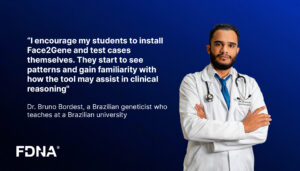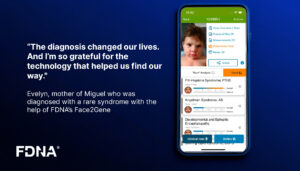January 9, 2019
The Washington Times article explores the use of AI-driven facial recognition technology in diagnosing rare genetic diseases. One such tool, Face2Gene, examines patients’ facial features to detect phenotypic patterns associated with specific disorders. This cutting-edge method aids doctors in achieving faster and more precise diagnoses, especially for conditions that are difficult to identify with conventional techniques. By handling extensive datasets, the technology significantly improves diagnostic accuracy, paving the way for enhanced patient care and outcomes.


